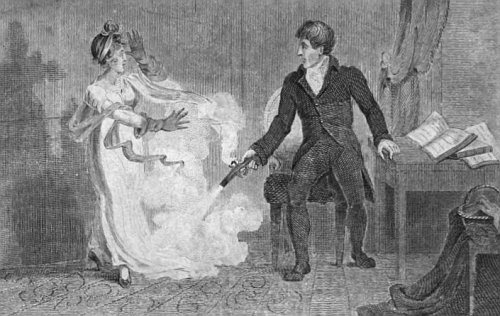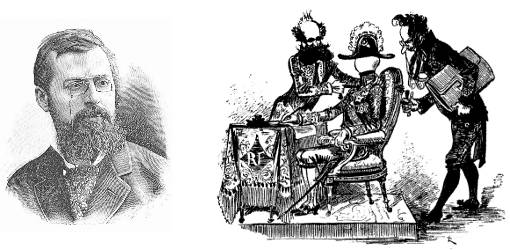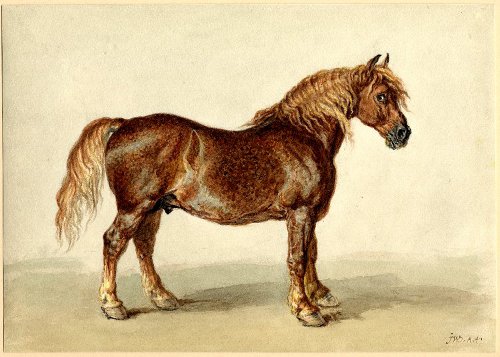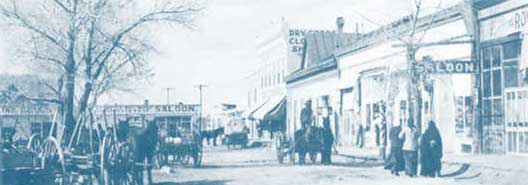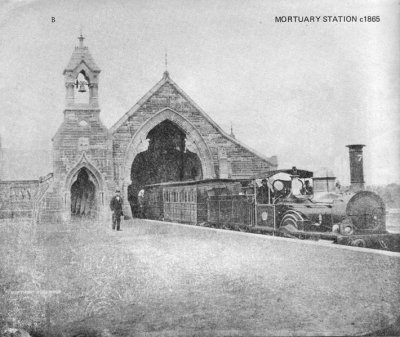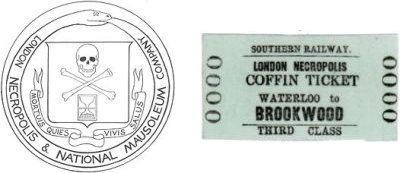From the Annual Register, 1840: “The following civilities between two ladies lately appeared in the public papers”:
Lady Seymour presents her compliments to lady Shuckburgh, and would be obliged to her for the character of Mary Stedman, who states that she has lived twelvemonths, and still is in lady Shuckburgh’s establishment. Can Mary Stedman cook plain dishes well? make bread? and is she honest, good tempered, sober, willing, and cleanly? Lady Seymour would also like to know the reason why she leaves lady Shuckburgh’s service? Direct, under cover, to lord Seymour, Maiden Bradley.
Lady Shuckburgh presents her compliments to lady Seymour. Her ladyship’s note, dated Oct. 28, only reached her yesterday, Nov. 3. Lady Shuckburgh was unacquainted with the name of the kitchen-maid, until mentioned by lady Seymour, as it is her custom neither to apply for or give characters to any of the under servants, this being always done by the housekeeper, Mrs. Couch — and this was well known to the young woman; therefore lady Shuckburgh is surprised at her referring any lady to her for a character. Lady Shuckburgh having a professed cook, as well as a housekeeper, in her establishment, it is not very likely she herself should know anything of the abilities or merits of the under servants; therefore, she is unable to answer lady Seymour’s note. Lady Shuckburgh cannot imagine Mary Stedman to be capable of cooking for any except the servants’ hall table. — November 4, Pavilion, Hans-place.
Lady Seymour presents her compliments to lady Shuckburgh, and begs she will order her housekeeper, Mrs. Pouch, to send the girl’s character without delay; otherwise another young woman will be sought for elsewhere, as lady Seymour’s children cannot remain without their dinners because lady Shuckburgh, keeping a ‘professed cook and a housekeeper,’ thinks a knowledge of the details of her establishment beneath her notice. Lady Seymour understood from Stedman that, in addition to her other talents, she was actually capable of dressing food fit for the little Shuckburghs to partake of when hungry.
(“To this note was appended a clever pen and ink vignette, by the Queen of Beauty, representing the three little Shuckburghs, with large turnip-looking heads and cauliflower wigs, sitting at a round table, eating and voraciously scrambling for mutton chops, dressed by Mary Stedman, who is seen looking on with supreme satisfaction, while lady Shuckburgh appears in the distance in evident dismay.”)
Madam, — Lady Shuckburgh has directed me to acquaint you that she declines answering your note, the vulgarity of which is beneath contempt; and although it may be the characteristic of the Sheridans, to be vulgar, coarse, and witty, it is not that of ‘a lady,’ unless she happens to have been born in a garret and bred in a kitchen. Mary Stedman informs me that your ladyship does not keep either a cook or a housekeeper, and that you only require a girl who can cook a mutton chop. If so, I apprehend that Mary Stedman, or any other scullion, will be found fully equal to cook for, or manage the establishment of, the Queen of Beauty. I am, your ladyship’s, &c., Elizabeth Couch (not Pouch).’
